Last week, I brought you three elementary fairy tale recommendations, and as promised, I’ve found two great titles for your middle school readers.
Of course, middle school students probably think they’re too cool for fairy tales. That’s why I’ve found some great options with darker themes and more complex narratives that are fresh and engaging. These titles play with their source material in unconventional ways and make for a far-from-ordinary fairy tale experience.
Don’t take my word for it, though. Check them out for yourself:
A Tale Dark & Grimm by Adam Gidwitz (Grades 5-8, Lexile 690) ![]()
Click the TR button to find a free Teacher Resource.
This fairy tale isn’t for the faint of heart.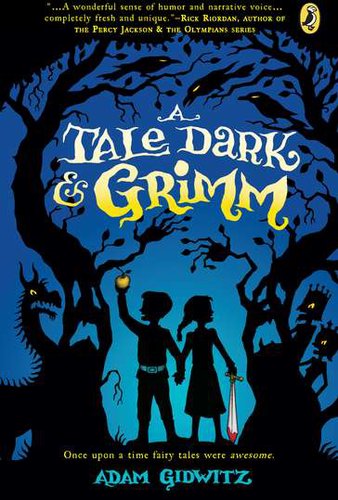
In Adam Gidwitz’s revisionist telling of Hansel and Gretel, children are decapitated, dragons are fought and grandmothers are locked in attics.
Sound interesting yet?
Your middle school readers are going to devour this book. Gidwitz’s narrator has a conversational tone that stands somewhere between foreshadowing and outright telling the reader to stop reading if they can’t handle the gory details (which of course eggs the reader on). Some fun tricks with the pagination and pacing also ensure that this book will be a literal page-turner for your students.
While you can surely use A Tale Dark and Grimm to segue into discussion about revisionist retellings of classic tales or the best tactics for fighting a dragon, what makes this book shine in my opinion is that it’s the exact kind of action-packed, accessible book that will grasp the attention of your reluctant readers and keep it.
Also, if they liked this one, there are two other titles in the series: In a Glass Grimmly and The Grimm Conclusion.
West of the Moon by Margi Preus (Grades 5-9, Lexile: 810)
Inspired by an entry written in Margi Preus’s great-great-grandmother Linka’s journal while immigrating to America, West of the Moon seamlessly weaves Norway’s cultural 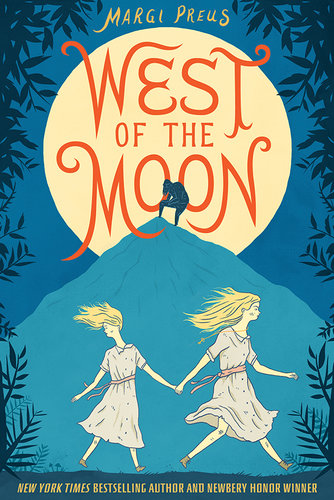 history with its folk and fairy tales.
history with its folk and fairy tales.
West of the Moon isn’t a straightforward fairy tale, however. It’s a story about two sisters’ flight from Norway, but Astri, the narrator, uses the fairy tales handed down to her to frame the journey and to rationalize the sometimes atrocious actions she takes.
This book makes an excellent introduction to unreliable narrators in fiction because of how it links storytelling to lying. If Astri admits the tales she tells are just lies, how much can she be trusted as the narrator of her own story? Does this make her any less heroic?
This book can also be used as a mentor text for crafting fiction with a creative family history project. Preus was inspired by a journal entry she found while digging through some family records. What interesting tidbits can your students find when they interview their own family? How could they take that information and spin it into a fairy tale or a sci-fi story?
—–
Check out the high school level fairy tale here. It’s one of my favorite recent reads, so you won’t want to miss it! You find our three elementary fairy tales here.
Booksource Recommendations


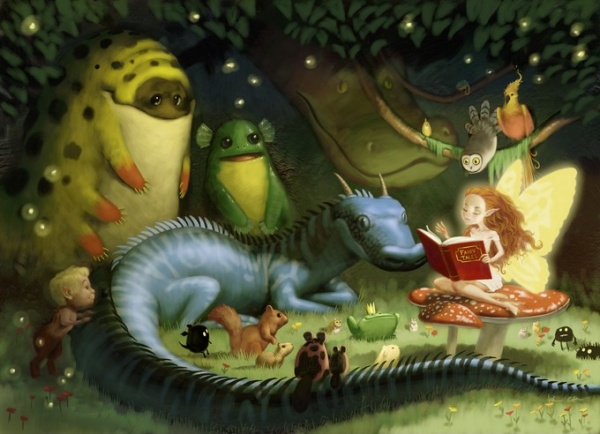
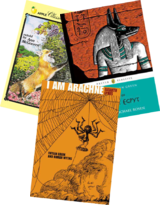
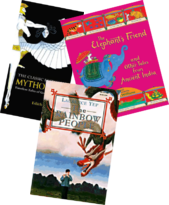
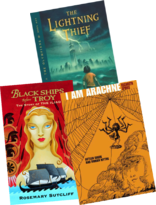
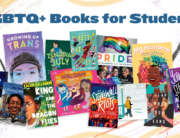
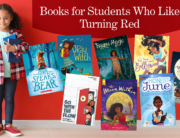
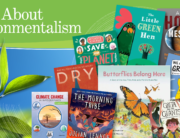
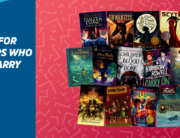
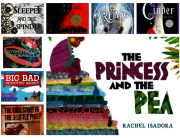
Leave A Comment